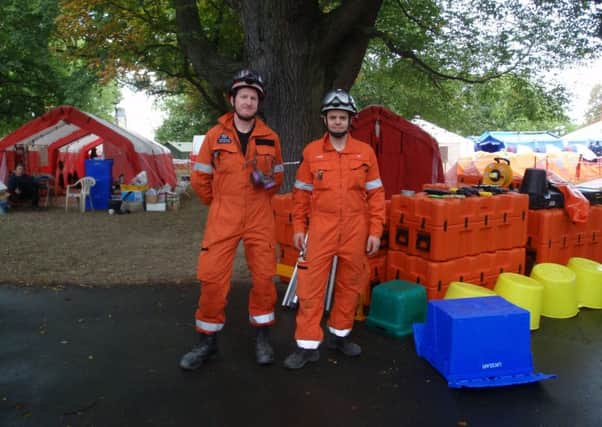Shoreham man joins team fighting diphtheria in Bangladesh


Neil Graham, 54, is among more than 40 British doctors, nurses and firefighters making their way to Cox’s Bazar in a bid to save thousands of lives at risk from a rapid and deadly outbreak of diphtheria.
He flew out from Heathrow on Saturday and is expected to remain in Bangladesh for at least three weeks.
Advertisement
Hide AdAdvertisement
Hide AdNeil is no stranger to working abroad in disaster zones as he joined the county-wide Technical Rescue Unit, based in Horley, when it started in 2006.
His most recent overseas mission was to Nepal following a devastating earthquake in 2015.
Neil is involved in all aspects of technical rescue and has been deployed to earthquakes in Indonesia, New Zealand and Nepal. He also delivers training and has attended exercises in Europe, Israel, America and South Africa.
Gavin Watts, chief fire officer for West Sussex Fire and Rescue Service, where Neil has worked for 17 years, said: “Our Technical Rescue Unit is regarded around the world for its specialist skills.
Advertisement
Hide AdAdvertisement
Hide Ad“We wish Neil all the best on this important deployment that we hope will save lives.”
Cox’s Bazar is home to more than 600,000 Rohingya people who have fled Burma.
The Emergency Medical Team, which was certified by the World Health Organisation in 2016, received a formal request to assist as there are not enough staff or beds to manage the outbreak of the deadly airborne virus.
Neil is one of five firefighters from the UK International Search and Rescue Team to be involved.
Advertisement
Hide AdAdvertisement
Hide AdThe firefighters will be responsible for the transportation, accommodation and safety and security of the medical staff. They will also carry out work to improve standards within the refugee camps.
International development secretary Penny Mordaunt said: “This will be an absolutely critical deployment, in a race against time for men, women and children at risk of dying from one of the world’s cruellest infections.
“Our brave British medical heroes are the world leaders in saving lives, acting rapidly in crisis to avert a humanitarian catastrophe.
“I have heard first-hand the harrowing stories of Rohingya families who have escaped persistent persecution, violence and tragedy. In the face of this new horror it is absolutely right that we step up to end their relentless suffering and stop them falling prey to a rampaging, preventable disease that could kill thousands.”